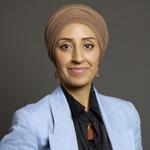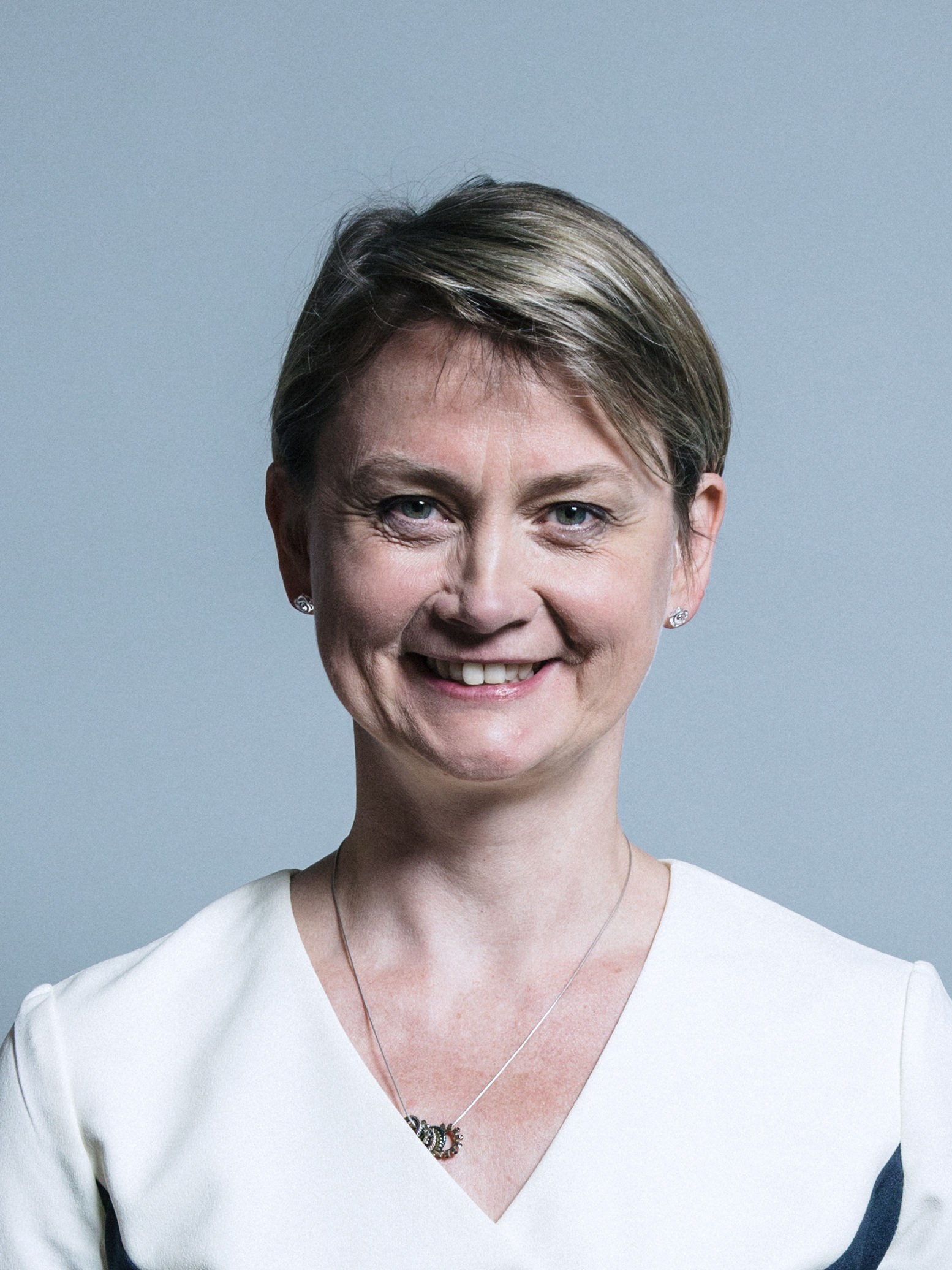Foreign, Commonwealth & Development Office
We pursue our national interests and project the UK as a force for good in the world. We promote the interests of British citizens, safeguard the UK’s security, defend our values, reduce poverty and tackle global challenges with our international partners.
Shadow Ministers / Spokeperson
Liberal Democrat
Lord Purvis of Tweed (LD - Life peer)Liberal Democrat Lords Spokesperson (Foreign and Commonwealth Affairs)
Calum Miller (LD - Bicester and Woodstock)
Liberal Democrat Spokesperson (Foreign Affairs)
Conservative
Priti Patel (Con - Witham)Shadow Secretary of State for Foreign, Commonwealth and Development Affairs
Green Party
Ellie Chowns (Green - North Herefordshire)Green Spokesperson (Foreign Affairs)
Junior Shadow Ministers / Deputy Spokesperson
Conservative
Lord Callanan (Con - Life peer)Shadow Minister (Foreign, Commonwealth and Development Office)
Wendy Morton (Con - Aldridge-Brownhills)
Shadow Minister (Foreign, Commonwealth and Development Office)
Ministers of State
Stephen Doughty (LAB - Cardiff South and Penarth)Minister of State (Foreign, Commonwealth and Development Office)
Parliamentary Under-Secretaries of State
Lord Collins of Highbury (Lab - Life peer)Parliamentary Under-Secretary (Foreign, Commonwealth and Development Office)
Hamish Falconer (Lab - Lincoln)
Parliamentary Under-Secretary (Foreign, Commonwealth and Development Office)
Seema Malhotra (LAB - Feltham and Heston)
Parliamentary Under-Secretary (Foreign, Commonwealth and Development Office)
Chris Elmore (Lab - Bridgend)
Parliamentary Under-Secretary (Foreign, Commonwealth and Development Office)
00:01
Although China is the UK’s fifth largest trading partner, the UK Government has, in recent years, described China as an …
To ask His Majesty's Government whether any files relating to the overseas travel or official engagements of Andrew Mountbatten-Windsor in …
This Order approves the making of payments on behalf of the Government of the United Kingdom to the Caribbean Development …
A Bill to make provision for and in connection with the implementation by the United Kingdom of the Agreement under …
22:32
News and Communications
Foreign, Commonwealth & Development Office Commons Appearances
Oral Answers to Questions is a regularly scheduled appearance where the Secretary of State and junior minister will answer at the Dispatch Box questions from backbench MPs
Other Commons Chamber appearances can be:- Urgent Questions where the Speaker has selected a question to which a Minister must reply that day
- Adjornment Debates a 30 minute debate attended by a Minister that concludes the day in Parliament.
- Oral Statements informing the Commons of a significant development, where backbench MP's can then question the Minister making the statement.
Westminster Hall debates are performed in response to backbench MPs or e-petitions asking for a Minister to address a detailed issue
Written Statements are made when a current event is not sufficiently significant to require an Oral Statement, but the House is required to be informed.
Most Recent Commons Appearances by Category
Bills currently before Parliament
Foreign, Commonwealth & Development Office does not have Bills currently before Parliament
Acts of Parliament created in the 2024 Parliament
A Bill to make provision for and in connection with the implementation by the United Kingdom of the Agreement under the United Nations Convention on the Law of the Sea on the Conservation and Sustainable Use of Marine Biological Diversity of Areas Beyond National Jurisdiction.
This Bill received Royal Assent on 12th February 2026 and was enacted into law.
Foreign, Commonwealth & Development Office - Secondary Legislation
Petitions
e-Petitions are administered by Parliament and allow members of the public to express support for a particular issue.
If an e-petition reaches 10,000 signatures the Government will issue a written response.
If an e-petition reaches 100,000 signatures the petition becomes eligible for a Parliamentary debate (usually Monday 4.30pm in Westminster Hall).
(23,316 in the last 7 days)
(4,729 in the last 7 days)
(962 in the last 7 days)
(117 in the last 7 days)
(23,316 in the last 7 days)
(64 in the last 7 days)
(4,729 in the last 7 days)
(11 in the last 7 days)
Petition Closed
Urgently fulfil humanitarian obligations to Gaza
Gov Responded - 8 Aug 2025 Debated on - 24 Nov 2025closed 7 months ago
Act to ensure deliverer of fuel, food, aid, life saving services etc. We think this shouldn't be dependant/on condition of Israeli facilitation as the Knesset voted against UNWRA access to Gaza. We think if military delivery of aid, airdrops, peacekeepers etc, are needed, then all be considered.
Departmental Select Committee
Foreign Affairs Committee
Commons Select Committees are a formally established cross-party group of backbench MPs tasked with holding a Government department to account.
At any time there will be number of ongoing investigations into the work of the Department, or issues which fall within the oversight of the Department. Witnesses can be summoned from within the Government and outside to assist in these inquiries.
Select Committee findings are reported to the Commons, printed, and published on the Parliament website. The government then usually has 60 days to reply to the committee's recommendations.
11 Members of the Foreign Affairs Committee

Foreign Affairs Committee Member since 11th September 2024

Foreign Affairs Committee Member since 21st October 2024

Foreign Affairs Committee Member since 21st October 2024

Foreign Affairs Committee Member since 21st October 2024

Foreign Affairs Committee Member since 21st October 2024

Foreign Affairs Committee Member since 21st October 2024

Foreign Affairs Committee Member since 28th October 2024

Foreign Affairs Committee Member since 28th October 2024

Foreign Affairs Committee Member since 16th December 2024

Foreign Affairs Committee Member since 16th December 2024

Foreign Affairs Committee Member since 27th October 2025
Foreign Affairs Committee: Upcoming Events
Disinformation diplomacy: How malign actors are seeking to undermine democracy
9 Mar 2026, 1 p.m.
View calendar - Save to Calendar
Foreign Affairs Committee - Oral evidence
Follow-up to Israel-Palestine conflict inquiry
10 Mar 2026, 9:30 a.m.
View calendar - Save to Calendar
Foreign Affairs Committee: 17 Current Inquiries
Foreign Affairs Committee: Previous Inquiries
50 most recent Written Questions
(View all written questions)Immigration crime is an international problem, and it can only be solved through international cooperation.
That is why we have worked to develop agreements with France, Germany and Italy and others to break the business model of the criminal gangs, and why we are working upstream in Iraq, the Balkans, Ethiopia and elsewhere to disrupt smuggling supply chains, and reduce the drivers of illegal migration.
Parliamentary Under-Secretary (Foreign, Commonwealth and Development Office)
The UK should be proud of the progress made in international development this century. But the world has changed, and so must we. With less money, we must make choices and focus on greater impact
The Global Health Workforce Programme, led by the Department of Health and Social Care and delivered by organisations including Global Health Partnerships, is closing at the end of March 2026.
Efforts are being made with delivery partners to ensure the sustainability of projects beyond the programme’s lifetime.
We remain committed to international development and will continue to support countries to build resilient, sustainable health systems.
Parliamentary Under-Secretary (Foreign, Commonwealth and Development Office)
Last week, the Foreign Secretary visited Kyiv on the fourth anniversary of Russia’s full-scale invasion, where she announced £5 million of UK funding to support justice and accountability for victims and survivors of alleged Russian war crimes.
Together with First Lady Olena Zelenska, the Foreign Secretary met organisations that supported returned Ukrainian children from Russia, and a mother who was separated and now returned to her children.
I raised this issue in my statements to the UN on the fourth anniversary of the full-scale invasion on 24 February and hosted a lunch with Ministerial counterparts whilst there to drive forward action on this key issue.
Minister of State (Foreign, Commonwealth and Development Office)
All export licence applications are assessed for the risk of diversion and are kept under careful and continual review. We have recently reviewed over 2,000 licences for the United Arab Emirates (UAE).
The risk of diversion is complex and is the single biggest reason export licences are refused. We regularly refuse licences, including to the UAE, for this reason.
We carefully review any reports we receive, but to date, there is no evidence of UK weapons or ammunition being used in Sudan.
Parliamentary Under-Secretary (Foreign, Commonwealth and Development Office)
Since the ceasefire, aid flows have increased and more crossings are partially reopened, but the level of need cannot be met unless more restrictions are lifted.
Medical equipment, components for field hospitals and basic shelter items must be allowed to enter to alleviate suffering.
We continue to raise with Israel, the US and regional partners the immediate requirement to lift restrictions on aid.
Parliamentary Under-Secretary (Foreign, Commonwealth and Development Office)
The Government is modernising its approach to development, moving from donors to investors, from delivering services to supporting systems, from providing grants to utilising our expertise, and from international interventions to supporting local solutions.
Country-led and community-led partnerships are at the heart of this approach, and we recognise the important contribution that cooperatives make to the prosperity of local communities, such as those in Zambia and Nepal working to improve smallholder farmers' access to markets, with the support of the UK.
Parliamentary Under-Secretary (Foreign, Commonwealth and Development Office)
I refer the Hon Member to the Prime Minister's statement to the House on 2 February, and to the responses provided in the Private Notice Question debate held in the House of Lords on the same date.
Parliamentary Under-Secretary (Foreign, Commonwealth and Development Office)
It is for the United States to set its own security and defence policy, as it is for any government.
However, there are many issues and initiatives where we share common objectives with the US, ranging from the AUKUS treaty and our joint work on critical minerals, to the ongoing efforts to secure peace and stability in Gaza, Sudan and Syria.
We will continue to work with our closest partner to pursue those and other shared goals.
Minister of State (Foreign, Commonwealth and Development Office)
Providing consular support is a vital public service, with more than 20,000 British people given tailored assistance each year.
We are continually investing in improvements, including integration of AI to improve efficiency, alongside staff training and crisis exercising to give a better service.
We are determined to reassure families that their voices are heard, which is why Ministers have held well over 20 meetings with the families of Brits detained abroad, and continually raise their cases with foreign governments at the highest levels.
In the last full financial year, the FCDO answered over 400,000 requests for consular support from British nationals overseas, and provided more tailored assistance in over 22,000 cases, including support for the families of more than 6,000 British nationals who had died overseas, and 3,500 who had been hospitalised.
Parliamentary Under-Secretary (Foreign, Commonwealth and Development Office)
The UK continues to use its penholder role at the UN Security Council (UNSC) to shine a spotlight on the Myanmar crisis, and condemn airstrikes on civilians and civilian infrastructure, in meetings attended by China and other Security Council members. Details of the UNSC meeting convened by the UK on 22 December 2025 can be found here: https://www.gov.uk/government/speeches/elections-under-the-current-circumstances-in-myanmar-risk-provoking-further-violence-uk-statement-on-myanmar
Parliamentary Under-Secretary (Foreign, Commonwealth and Development Office)
I refer the Hon Member to the answer he received on 28 October 2025 in response to Question 84207.
Parliamentary Under-Secretary (Foreign, Commonwealth and Development Office)
Foreign, Commonwealth and Development Office officials have met Chagossian individuals and groups over 30 times since 2024. I have met with Chagossian groups and individuals four times. The new Chagossian Contact Group has held meetings in September and December 2025, and again in January. The group will continue to meet quarterly.
Minister of State (Foreign, Commonwealth and Development Office)
The Foreign, Commonwealth and Development Office does not produce reports on religious persecution in Myanmar.
Parliamentary Under-Secretary (Foreign, Commonwealth and Development Office)
Lee Anderson
(Reform UK - Ashfield)
I refer the Hon Member to the details of the forecast cost at the time, and duration of the treaty set out in the Explanatory Memorandum published on 22 May 2025, and to the extensive discussion of all these issues and methodologies that has subsequently taken place during the passage of the Bill.
Minister of State (Foreign, Commonwealth and Development Office)
Mr Powell was appointed as the Prime Minister's Special Envoy in early August 2024. All information provided to him in that role was shared appropriately and in line with established procedures.
Minister of State (Foreign, Commonwealth and Development Office)
Mr Powell was appointed as the Prime Minister's Special Envoy in early August 2024. All information provided to him in that role was shared appropriately and in line with established procedures.
Minister of State (Foreign, Commonwealth and Development Office)
I refer the Hon Member to the answer given to Question 115118 on 3 March.
Minister of State (Foreign, Commonwealth and Development Office)
I refer the Hon Member to the answer provided in response to Questions 115117 on 3 March.
Minister of State (Foreign, Commonwealth and Development Office)
The UK remains committed to meeting the reasonable assistance needs of the Pitcairn Islands. Our funding supports a medical clinic on island and enables the Government of the Pitcairn Islands (GPI) to refer complex medical cases to Tahiti or New Zealand with support from an external healthcare provider.
Minister of State (Foreign, Commonwealth and Development Office)
Mike Wood
(Conservative - Kingswinford and South Staffordshire)
The UK has had no advance notice of specific disclosures on the US Justice Department's website.
Minister of State (Foreign, Commonwealth and Development Office)
I refer the Hon Member to the answer given to Question 115118 on 3 March.
Minister of State (Foreign, Commonwealth and Development Office)
I refer her to the Government's response to the Urgent Question tabled on 12th February, the Written Ministerial Statement in the name of the Chief Secretary to the Prime Minister that same day, and Oral Statement on the 23 February which set out an update on the Government's process. We will set out further details in due course. The Government wishes to ensure that Parliament's instruction is met with the urgency and transparency that it deserves.
Minister of State (Foreign, Commonwealth and Development Office)
Last year, the Government invested over £31 million in programmes in the Western Balkans, supporting women and girls, protecting democratic values, and enhancing resilience to hostile state influences, including funding for counter-disinformation and cyber defence support. We will set out details of future funding allocations in the coming months, we continue to be committed to pursuing a wide range of objectives in partnerships across the region focussed on stability, security, and prosperity among other issues.
Minister of State (Foreign, Commonwealth and Development Office)
Independent reporting by the UN Commission of Inquiry and the Organization for Security and Co-operation in Europe Moscow Mechanism has highlighted widespread abuses of prisoners of war, including violations of their fundamental rights. The UK has been clear that prisoners of war must be treated humanely and in full accordance with the Geneva Conventions and has called on Russia to meet its obligations under international humanitarian law. As per the UK's long-standing policy, it would not be appropriate to speculate about any future sanctions action, but - having already imposed on Russia the largest and most severe package of sanctions ever imposed on a major economy, alongside our international partners - we keep the scope for further action under constant review.
Minister of State (Foreign, Commonwealth and Development Office)
UK officials in London and at the our Embassy in Yerevan continue to monitor developments in the relationship between the Armenian Government and the Armenian Apostolic Church. We have consistently underlined the importance of all actions being fully in line with Armenia's constitutional and legal framework, ensuring that due process is respected and that all individuals are treated fairly under the law, with judicial proceedings remaining transparent and impartial. The Government remains firmly committed to the promotion and protection of the right to freedom of religion or belief worldwide.
Minister of State (Foreign, Commonwealth and Development Office)
Ministers and officials in the Foreign, Commonwealth and Development Office are in constant discussion with their US counterparts across a wide range of issues.
Minister of State (Foreign, Commonwealth and Development Office)
Ben Obese-Jecty
(Conservative - Huntingdon)
I apologise for the delay in responding to the Hon Member's question. The question was answered on 2 March.
Minister of State (Foreign, Commonwealth and Development Office)
I refer the Hon Member to the answer to Questions 114799 and 114800.
Minister of State (Foreign, Commonwealth and Development Office)
I refer the Hon Member to the answer provided on 10 February in response to Question 110708.
Minister of State (Foreign, Commonwealth and Development Office)
No meetings took place between ministers from the Foreign, Commonwealth and Development Office and the Deputy Prime Minister of Mauritius from the period 5 July 2024 to August 2025.
Minister of State (Foreign, Commonwealth and Development Office)
The UK is committed to meeting the reasonable assistance needs of Montserrat. Much of the Foreign, Commonwealth and Development Office (FCDO) funding allocated to Montserrat is used to support major infrastructure projects and economic development, such as the construction of a new hospital, a new air traffic control tower, and supporting green energy transition including geothermal testing. The FCDO work in partnership with Government of Montserrat (GoM) and the Governor's Office to ensure all proposals are assessed in accordance with FCDO and GoM rules and procedures.
Minister of State (Foreign, Commonwealth and Development Office)
The UK is committed to meeting the reasonable assistance needs of Montserrat. Much of the Foreign, Commonwealth and Development Office (FCDO) funding allocated to Montserrat is used to support major infrastructure projects and economic development, such as the construction of a new hospital, a new air traffic control tower, and supporting green energy transition including geothermal testing. The FCDO work in partnership with Government of Montserrat (GoM) and the Governor's Office to ensure all proposals are assessed in accordance with FCDO and GoM rules and procedures.
Minister of State (Foreign, Commonwealth and Development Office)
The UK is committed to meeting the reasonable assistance needs of Montserrat. Much of the Foreign, Commonwealth and Development Office (FCDO) funding allocated to Montserrat is used to support major infrastructure projects and economic development, such as the construction of a new hospital, a new air traffic control tower, and supporting green energy transition including geothermal testing. The FCDO work in partnership with Government of Montserrat (GoM) and the Governor's Office to ensure all proposals are assessed in accordance with FCDO and GoM rules and procedures.
Minister of State (Foreign, Commonwealth and Development Office)
The UK is committed to meeting the reasonable assistance needs of Montserrat. Much of the Foreign, Commonwealth and Development Office (FCDO) funding allocated to Montserrat is used to support major infrastructure projects and economic development, such as the construction of a new hospital, a new air traffic control tower, and supporting green energy transition including geothermal testing. The FCDO work in partnership with Government of Montserrat (GoM) and the Governor's Office to ensure all proposals are assessed in accordance with FCDO and GoM rules and procedures.
Minister of State (Foreign, Commonwealth and Development Office)
The UK is committed to meeting the reasonable assistance needs of Montserrat. Much of the Foreign, Commonwealth and Development Office (FCDO) funding allocated to Montserrat is used to support major infrastructure projects and economic development, such as the construction of a new hospital, a new air traffic control tower, and supporting green energy transition including geothermal testing. The FCDO work in partnership with Government of Montserrat (GoM) and the Governor's Office to ensure all proposals are assessed in accordance with FCDO and GoM rules and procedures.
Minister of State (Foreign, Commonwealth and Development Office)
The UK is committed to meeting the reasonable assistance needs of Montserrat. Much of the Foreign, Commonwealth and Development Office (FCDO) funding allocated to Montserrat is used to support major infrastructure projects and economic development, such as the construction of a new hospital, a new air traffic control tower, and supporting green energy transition including geothermal testing. The FCDO work in partnership with Government of Montserrat (GoM) and the Governor's Office to ensure all proposals are assessed in accordance with FCDO and GoM rules and procedures.
Minister of State (Foreign, Commonwealth and Development Office)
The UK is committed to meeting the reasonable assistance needs of Montserrat. Much of the Foreign, Commonwealth and Development Office (FCDO) funding allocated to Montserrat is used to support major infrastructure projects and economic development, such as the construction of a new hospital, a new air traffic control tower, and supporting green energy transition including geothermal testing. The FCDO work in partnership with Government of Montserrat (GoM) and the Governor's Office to ensure all proposals are assessed in accordance with FCDO and GoM rules and procedures.
Minister of State (Foreign, Commonwealth and Development Office)
The UK is committed to meeting the reasonable assistance needs of Montserrat. Much of the Foreign, Commonwealth and Development Office (FCDO) funding allocated to Montserrat is used to support major infrastructure projects and economic development, such as the construction of a new hospital, a new air traffic control tower, and supporting green energy transition including geothermal testing. The FCDO work in partnership with Government of Montserrat (GoM) and the Governor's Office to ensure all proposals are assessed in accordance with FCDO and GoM rules and procedures.
Minister of State (Foreign, Commonwealth and Development Office)
Poland is a vital UK ally and a NATO member, playing a central role in the defence of NATO's eastern flank and security in the Baltic region. Poland is also a crucial partner in supporting Ukraine, including through military, humanitarian and logistical assistance. Poland is not currently seeking membership of the Joint Expeditionary Force (JEF), but has contributed to JEF exercises through the JEF Plus mechanism.
Minister of State (Foreign, Commonwealth and Development Office)
The UK's Economic Partnership Agreements and Developing Countries Trading Scheme provide West and Central African partners with preferential access to the UK market, supporting growth, employment, and development of resilient agricultural supply chains. This preferential access has enabled West African banana‑exporting countries, including Ghana and Côte d'Ivoire, to strengthen their position in the UK market, underpinning rural livelihoods in sectors where women play a significant role.
We have also supported the African Continental Free Trade Agreement and worked with TradeMark Africa to strengthen trade corridors on the continent, including tackling the barriers that women face when engaging in cross‑border trade.
Parliamentary Under-Secretary (Foreign, Commonwealth and Development Office)
The UK's Economic Partnership Agreements and Developing Countries Trading Scheme provide West and Central African partners with preferential access to the UK market, supporting growth, employment, and development of resilient agricultural supply chains. This preferential access has enabled West African banana‑exporting countries, including Ghana and Côte d'Ivoire, to strengthen their position in the UK market, underpinning rural livelihoods in sectors where women play a significant role.
We have also supported the African Continental Free Trade Agreement and worked with TradeMark Africa to strengthen trade corridors on the continent, including tackling the barriers that women face when engaging in cross‑border trade.
Parliamentary Under-Secretary (Foreign, Commonwealth and Development Office)
I refer the Hon Member to the answer given on 24 November 2025 to Question 91527 following elections in Cameroon. Further to this, the UK continues to work with international partners, including through the UN and G7, to encourage the Government of Cameroon to uphold human rights. Through our British High Commission in Yaoundé, we regularly raise concerns and urge stronger democratic governance and engagement with the Office of the UN High Commissioner for Human Rights.
Parliamentary Under-Secretary (Foreign, Commonwealth and Development Office)
I thank the Noble Lord for his series of related questions submitted from 6-11 February.
As I said in responding to Baroness Alexander of Clevenden in the House of Lords on 25 February, the UK Government consistently urges the Pakistani authorities to act in line with their international obligations and respect fundamental freedoms and human rights. The former Foreign Secretary raised these issues on his visit last May.
We will continue to urge our Pakistani counterparts to protect the rights of all people in Pakistan, including protesters and detainees, in accordance with its constitution and international standards.
We continuously examine all levers at our disposal to deliver for UK interests. Pakistan is an indispensable partner in keeping the UK safe from irregular migration, terror threats and organised crime, and some of the technical assistance we provide through UK ODA is integral to these efforts.
In relation to Imran Khan and his family members, I refer the Noble Lord to the answer provided on 4 December 2025 in response to Question HL12453.
Minister of State (Development)
I thank the Noble Lord for his series of related questions submitted from 6-11 February.
As I said in responding to Baroness Alexander of Clevenden in the House of Lords on 25 February, the UK Government consistently urges the Pakistani authorities to act in line with their international obligations and respect fundamental freedoms and human rights. The former Foreign Secretary raised these issues on his visit last May.
We will continue to urge our Pakistani counterparts to protect the rights of all people in Pakistan, including protesters and detainees, in accordance with its constitution and international standards.
We continuously examine all levers at our disposal to deliver for UK interests. Pakistan is an indispensable partner in keeping the UK safe from irregular migration, terror threats and organised crime, and some of the technical assistance we provide through UK ODA is integral to these efforts.
In relation to Imran Khan and his family members, I refer the Noble Lord to the answer provided on 4 December 2025 in response to Question HL12453.
Minister of State (Development)
I thank the Noble Lord for his series of related questions submitted from 6-11 February.
As I said in responding to Baroness Alexander of Clevenden in the House of Lords on 25 February, the UK Government consistently urges the Pakistani authorities to act in line with their international obligations and respect fundamental freedoms and human rights. The former Foreign Secretary raised these issues on his visit last May.
We will continue to urge our Pakistani counterparts to protect the rights of all people in Pakistan, including protesters and detainees, in accordance with its constitution and international standards.
We continuously examine all levers at our disposal to deliver for UK interests. Pakistan is an indispensable partner in keeping the UK safe from irregular migration, terror threats and organised crime, and some of the technical assistance we provide through UK ODA is integral to these efforts.
In relation to Imran Khan and his family members, I refer the Noble Lord to the answer provided on 4 December 2025 in response to Question HL12453.
Minister of State (Development)
I thank the Noble Lord for his series of related questions submitted from 6-11 February.
As I said in responding to Baroness Alexander of Clevenden in the House of Lords on 25 February, the UK Government consistently urges the Pakistani authorities to act in line with their international obligations and respect fundamental freedoms and human rights. The former Foreign Secretary raised these issues on his visit last May.
We will continue to urge our Pakistani counterparts to protect the rights of all people in Pakistan, including protesters and detainees, in accordance with its constitution and international standards.
We continuously examine all levers at our disposal to deliver for UK interests. Pakistan is an indispensable partner in keeping the UK safe from irregular migration, terror threats and organised crime, and some of the technical assistance we provide through UK ODA is integral to these efforts.
In relation to Imran Khan and his family members, I refer the Noble Lord to the answer provided on 4 December 2025 in response to Question HL12453.
Minister of State (Development)
I thank the Noble Lord for his series of related questions submitted from 6-11 February.
As I said in responding to Baroness Alexander of Clevenden in the House of Lords on 25 February, the UK Government consistently urges the Pakistani authorities to act in line with their international obligations and respect fundamental freedoms and human rights. The former Foreign Secretary raised these issues on his visit last May.
We will continue to urge our Pakistani counterparts to protect the rights of all people in Pakistan, including protesters and detainees, in accordance with its constitution and international standards.
We continuously examine all levers at our disposal to deliver for UK interests. Pakistan is an indispensable partner in keeping the UK safe from irregular migration, terror threats and organised crime, and some of the technical assistance we provide through UK ODA is integral to these efforts.
In relation to Imran Khan and his family members, I refer the Noble Lord to the answer provided on 4 December 2025 in response to Question HL12453.
Minister of State (Development)
I thank the Noble Lord for his series of related questions submitted from 6-11 February.
As I said in responding to Baroness Alexander of Clevenden in the House of Lords on 25 February, the UK Government consistently urges the Pakistani authorities to act in line with their international obligations and respect fundamental freedoms and human rights. The former Foreign Secretary raised these issues on his visit last May.
We will continue to urge our Pakistani counterparts to protect the rights of all people in Pakistan, including protesters and detainees, in accordance with its constitution and international standards.
We continuously examine all levers at our disposal to deliver for UK interests. Pakistan is an indispensable partner in keeping the UK safe from irregular migration, terror threats and organised crime, and some of the technical assistance we provide through UK ODA is integral to these efforts.
In relation to Imran Khan and his family members, I refer the Noble Lord to the answer provided on 4 December 2025 in response to Question HL12453.
Minister of State (Development)
I thank the Noble Lord for his series of related questions submitted from 6-11 February.
As I said in responding to Baroness Alexander of Clevenden in the House of Lords on 25 February, the UK Government consistently urges the Pakistani authorities to act in line with their international obligations and respect fundamental freedoms and human rights. The former Foreign Secretary raised these issues on his visit last May.
We will continue to urge our Pakistani counterparts to protect the rights of all people in Pakistan, including protesters and detainees, in accordance with its constitution and international standards.
We continuously examine all levers at our disposal to deliver for UK interests. Pakistan is an indispensable partner in keeping the UK safe from irregular migration, terror threats and organised crime, and some of the technical assistance we provide through UK ODA is integral to these efforts.
In relation to Imran Khan and his family members, I refer the Noble Lord to the answer provided on 4 December 2025 in response to Question HL12453.
Minister of State (Development)
